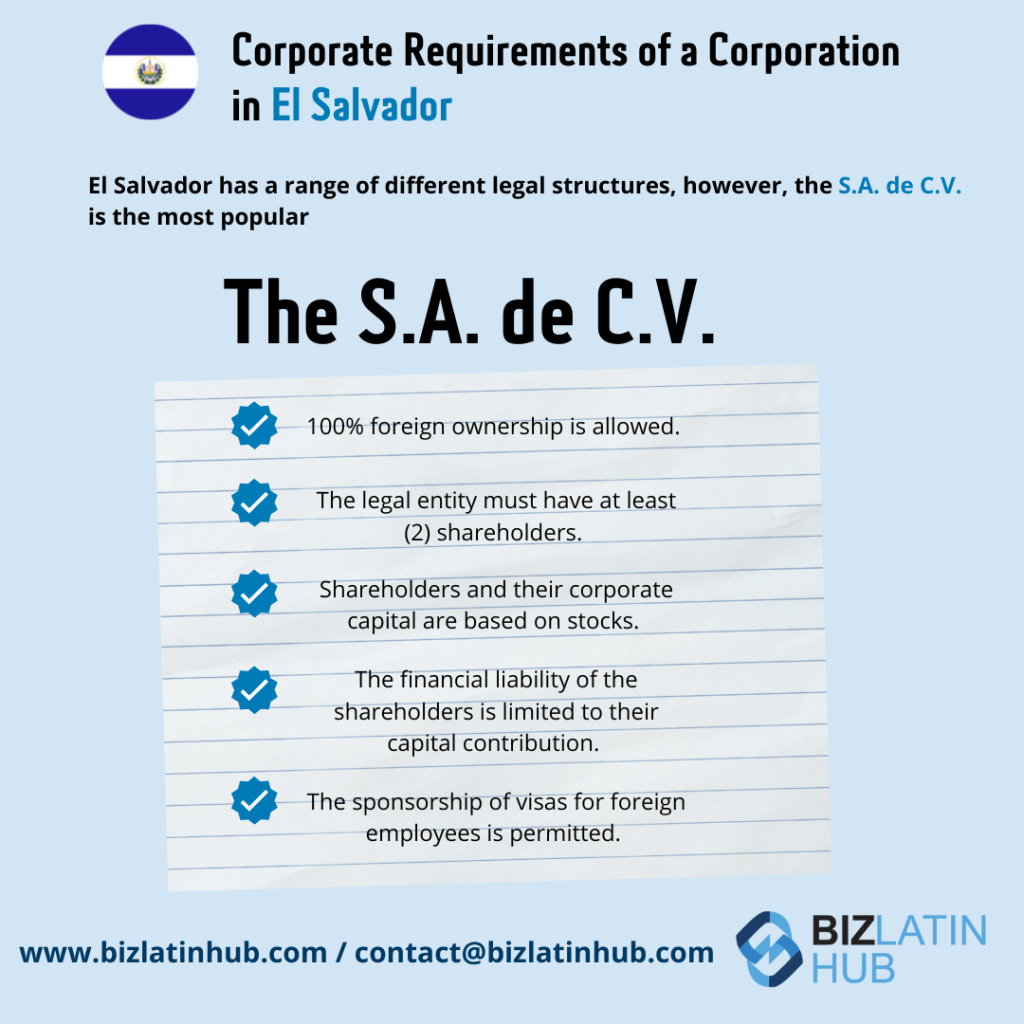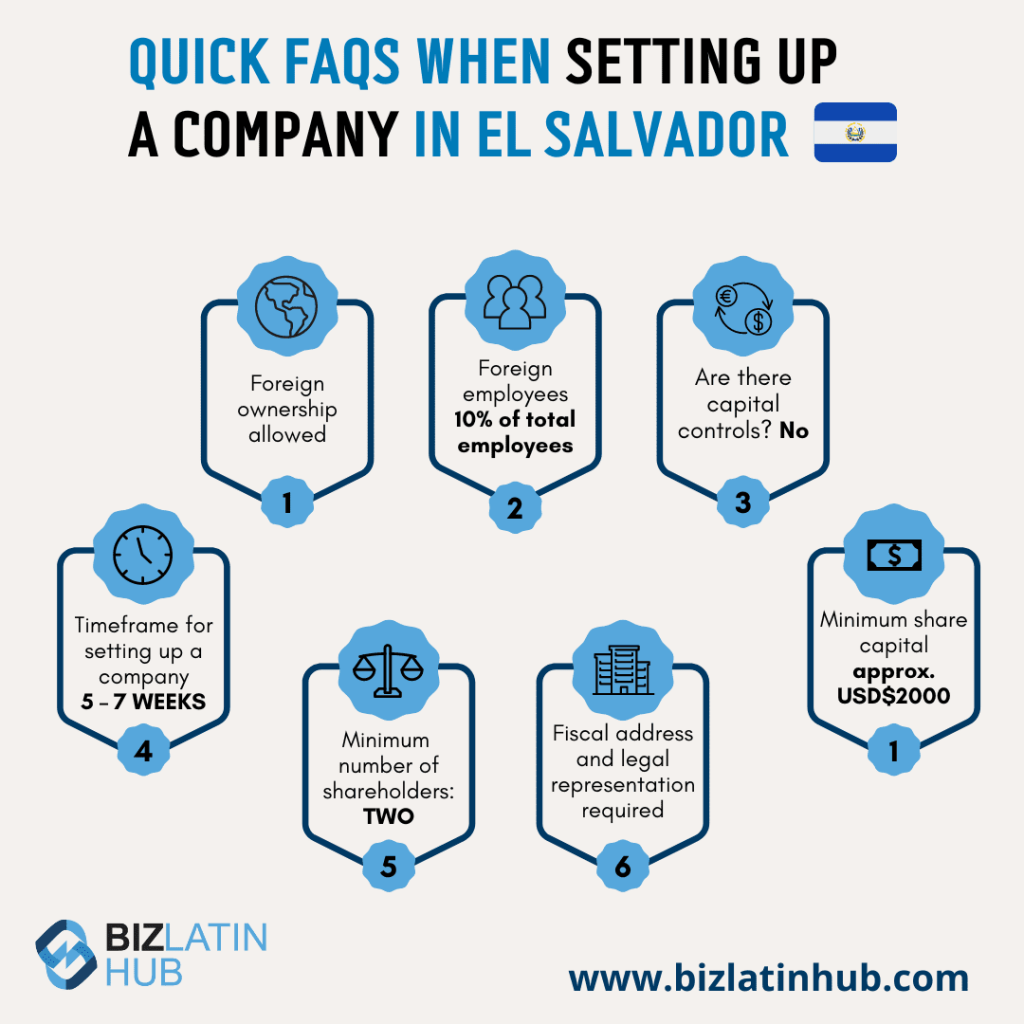El Salvador, as with many countries in Latin America, has a variety of different legal structures that can be applied to newly created companies. In a previous article, we looked at the steps involved with registering a company in El Salvador. This article will provide a brief overview of the main 3 types of legal structures in the region.

Table of Contents
Legal Entity Type 1 – The Limited Liability Company (Ltda.)
The main distinguishing feature of this company structure is that capital investment is not based on stocks, but rather is an established process of Social Participation. In this system, “partners” replace shareholders. The Regimen of Administration can only be established by the management, who chooses the partners and manager/s who will serve as legal representatives of the company. In cases where partners do not select a manager or his legal function has expired, partners can assume the role of Legal Representative for the company.
This company structure is most commonly employed by private companies, and in circumstances where partners and a third party want to participate in the company formation. Once the partners have agreed on the aforementioned selection process, the denomination or name of the company it must include the words “Sociedad de Responsabilidad Limitada” for registration purposes.
Legal Entity Type 2 – The Public Limited Company (S.A de C.V).
This is the most common type of company found in El Salvador. This structure does include shareholders and corporate capital is based on stocks. The legal representation of this company structure is done by a Board of Directors or through Unique Administration. Similarly to the Ltda. structure, there are naming rights that must be fulfilled; all companies in this category must include the words “Sociedad Anónima” in their titles.
The main benefit of having a company based on stocks is that shareholders can endorse them independently to other shareholders. This type of company also does not hold a limit to the number of shareholders that can participate at an administrative level.

Legal Entity Type 3 – The Branch Office Company (Sucursal)
The Branch Office model is the least common structure seen in El Salvador, as a result of a much longer/complicated incorporation process, which requires registration at the Ministry of Economy, as well as the following documents and/or information:
- A minimum capital investment of USD$12,000
- The necessary documents that prove the company is properly and legally incorporated in its country of origin
- The presentation of initial financial statements from the branch office
- A functioning corporate bank account
- Finally, the branch must contain the name of the head office, with the additional words “Sucursal El Salvador” (El Salvador Branch)
The aforementioned steps must be followed before a company can present itself to the Commerce of Registry in El Salvador and incorporate it into the country. The legal representation of such a company can be done in one of two ways:
- The Board of Directors that directly manage the El Salvador branch can legally represent the company, or:
- Via the appointment of a legal representative and establishing a Power of Attorney (POA)
Any Questions on Company Structures in El Salvador?
According to the nature of the services you wish to provide, the size of your company, and your own personal management preferences, it is important to understand the different types of companies and/or legal entities that exist in El Salvador.
Our team of experts can assist you in making informed decisions that perfectly suit your business model, providing support with legal assistance and with the steps involved with a company incorporation. For any queries that you may have, please do not hesitate to get in contact with us and learn about ways we can help your company in El Salvador.
Interested in doing business in Latin America? Watch this short video below to learn more.

The information provided here within should not be construed as formal guidance or advice. Please consult a professional for your specific situation. Information provided is for informative purposes only and may not capture all pertinent laws, standards, and best practices. The regulatory landscape is continually evolving; information mentioned may be outdated and/or could undergo changes. The interpretations presented are not official. Some sections are based on the interpretations or views of relevant authorities, but we cannot ensure that these perspectives will be supported in all professional settings.